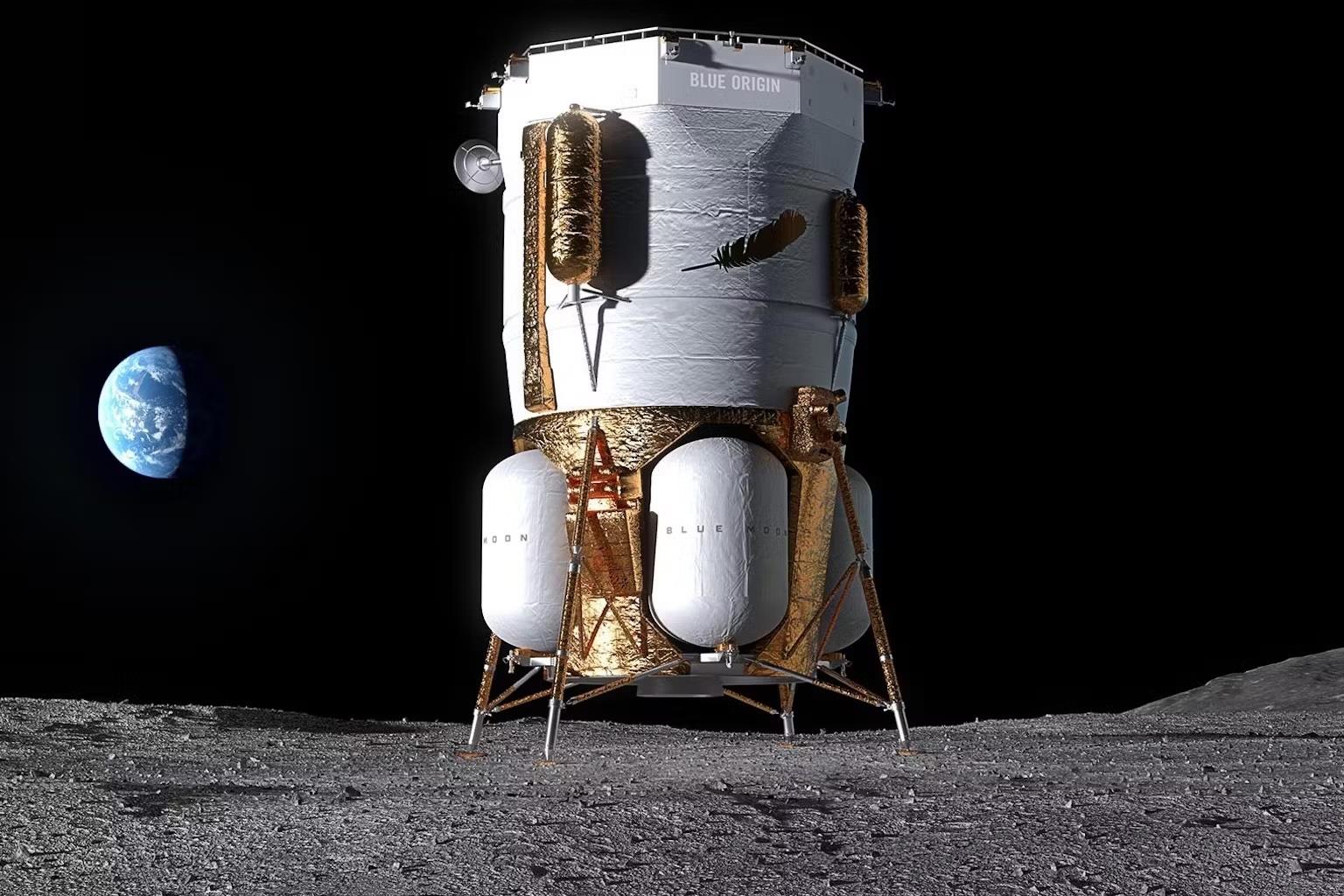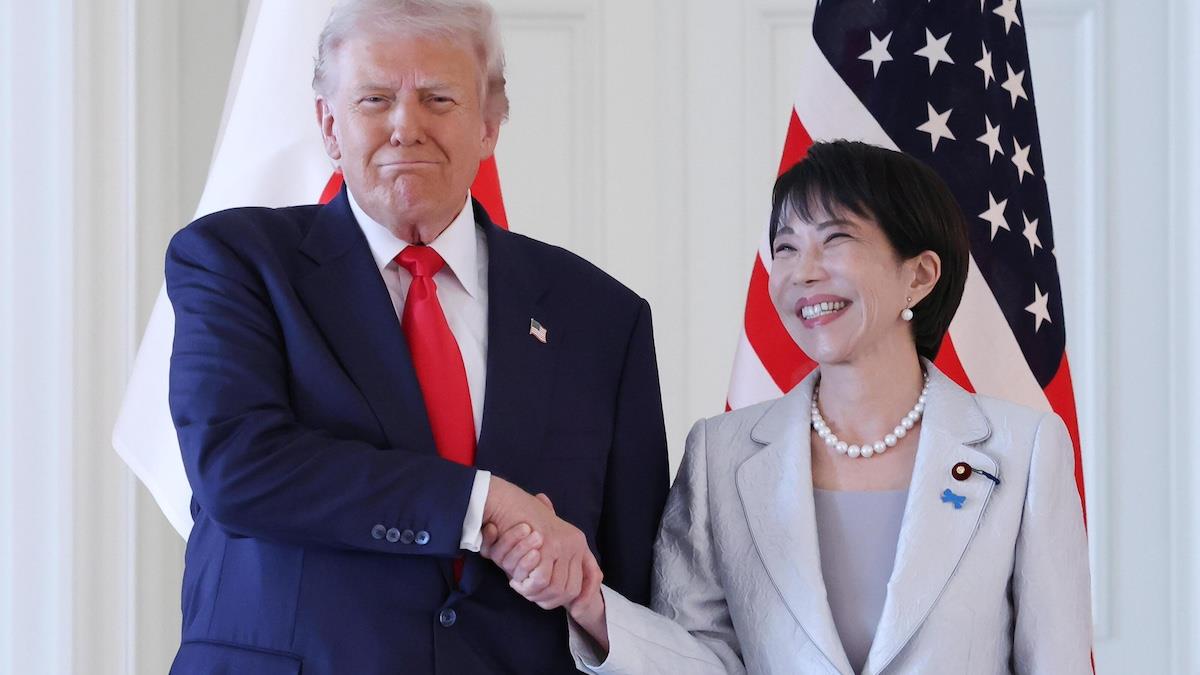
Trying To Discern A Strategy Behind Trump's Global Adventuring
The burdens of acting as the world's policeman, to give it a positive label, or of trying to be the controlling global power, to label it more negatively, are huge – and the risks of actions going expensively wrong are high, as Iraq and Afghanistan showed during the past two decades.
However, by sending his country's most advanced aircraft carrier to patrol menacingly off the coast of Venezuela, Trump has surely put paid to any idea that he wants to avoid meddling in other countries' affairs.
Last week provided plenty more evidence that Trump has no intention of retreating from global affairs:
-
his regal tour of Malaysia, Japan and South Korea;
his announcement that America will resume testing of nuclear weapons, for the first time since 1992; and
his diplomats' frantic efforts to prove that the“historic” ceasefire he negotiated between Israel and Hamas is still holding despite Israeli forces killing more than 100 people in Gaza in two days of attacks.
Given all that activity, the true question for America's long-time but now disenchanted allies in Europe and Asia concerns what Trump's foreign policy goals really are. If he is not an isolationist, then what is he?
Trump's other slogan,“Make America Great Again,” so far offers a better guide to his mentality and intentions than“America First.” By flexing America's economic, diplomatic and military muscles he clearly wants to prove that the US remains not just one of the world's great powers but the predominant one. And he wants that muscle-flexing to make him look good.
President Trump and his team hate multilateral forums with their boring meetings of government leaders, which is why he chose not to attend either the East Asia Summit of 18 countries held in Malaysia, while he was there, or the Asia Pacific Economic Co-operation Forum of 21 countries, which brought him and China's President Xi Jinping to South Korea.
His preferred forums are either bilateral ones, in which direct personal negotiation can be deployed, or theatrical televisual events that display power and, he hopes, persuade viewers to support him.
Latest stories
Israeli military dumps Chinese cars

China and the US race to the Moon – but first, Musk vs. Bezos

'A House of Dynamite' explodes US power myths
The outcome of his bilateral negotiations with the three most important interlocutors he met during his Asian trip, China's President Xi, Japan's new prime minister Sanae Takaichi and South Korea's President Lee Jae Myung, suggested that although his mentality remains transactional and adversarial he and his team of advisers are also learning that deals are best when placed as part of a strategy.
The main theme of that strategy appears to be the competition for global influence between America and China.
Admittedly, some of the headlines from these three meetings were for his domestic audience back in the United States: the message being that his bullying with tariffs
-
has persuaded Japanese and South Korean companies to plan massive investments in manufacturing and technology in the US, and
has persuaded China to resume purchases of American soybeans, which are important to farmers who voted for him a year ago.
But many of these supposed“wins” for America are likely to prove either illusory or exaggerated. Many of the investments merely carried forward plans made under the Biden administration – or are not really yet fully decided upon – and China's promise to buy soybeans is too little and too late to make much difference this year to American farmers.
However, several other announcements look more novel and more meaningful.
America has a shortage of shipbuilding capacity, a shortage that makes the US Navy look vulnerable in case of a future conflict with China. Japan and South Korea are the world's two biggest and most capable shipbuilders after China itself. So the agreement to make joint investments in shipbuilding, both in the US and in Japan and South Korea, could represent a strategic acknowledgement that allies have value.
And Trump's statement that America's agreement with South Korea will include nuclear-powered submarines could represent an important expansion of the 2021 AUKUS deal to share American and British nuclear-propulsion technology with Australia. Japan might well be next.
Trump's short meeting with Xi represented a sober reality: In dealing with China, America faces an economic giant that now has as much negotiating leverage as America does.
The real issues were deferred until negotiations next year, but the fact that the two sides declared a kind of a truce in their trade war, as part of which China agreed to delay imposing export controls on the critical minerals that are so important for high-tech manufacturers worldwide, can be counted as good news for Europe too.
The actions that America is taking in Latin America looked at first glance as if they might signify a desire to concentrate on America's backyard rather than on global issues. But placed alongside Trump's Asian diplomacy the picture looks different.
The reason why the US Treasury took the strange decision to promise $40 billion of public and private support, in full contradiction of“America First” pledges, seems to be that Trump is keen to prevent China from becoming too influential in that continent. Helping his friend President Javier Milei win Argentina's parliamentary elections looks to have served that cause, albeit at the risk of losing billions.
The risks of killing alleged drug smugglers in the Caribbean are lower, especially for an administration that doesn't care about international law or causing outrage. But the intention signaled by sailing an aircraft carrier group into the region is a much bigger one: potentially to force a change in the governing regime in Venezuela, a country that has become highly dependent on loans from China.
If Trump really intends to take military action to try to force that change, he had better bear in mind the lessons of past interventions in Iraq and Afghanistan.

Sign up for one of our free newsletters
-
The Daily Report
Start your day right with Asia Times' top stories
AT Weekly Report
A weekly roundup of Asia Times' most-read stories
Moreover, if this really turns out to be a long-term strategy for the Trump administration, and if Trump really understands that confronting China and Russia just through trade threats and now nuclear tests is not productive, then perhaps old allies in Europe and Asia can take heart.
Perhaps, after nearly a year of transactional bullying and insults, he and his team may be coming to realize that having allies makes America stronger, not weaker. It would be premature to draw a firm conclusion about that, but the past week's diplomacy provides some reason for hope.
Formerly editor-in-chief of The Economist, Bill Emmott is currently chairman of the Japan Society of the UK, the International Institute for Strategic Studies and the International Trade Institute.
Previously published on his Substack newsletter Bill Emmott's Global View, this is the English original of an article published in Italian in La Stampa. It is republished with permission.
Sign up here to comment on Asia Times stories Or Sign in to an existing accounThank you for registering!
An account was already registered with this email. Please check your inbox for an authentication link.
-
Click to share on X (Opens in new window)
Click to share on LinkedIn (Opens in new window)
LinkedI
Click to share on Facebook (Opens in new window)
Faceboo
Click to share on WhatsApp (Opens in new window)
WhatsAp
Click to share on Reddit (Opens in new window)
Reddi
Click to email a link to a friend (Opens in new window)
Emai
Click to print (Opens in new window)
Prin

Legal Disclaimer:
MENAFN provides the
information “as is” without warranty of any kind. We do not accept
any responsibility or liability for the accuracy, content, images,
videos, licenses, completeness, legality, or reliability of the information
contained in this article. If you have any complaints or copyright
issues related to this article, kindly contact the provider above.


















Comments
No comment